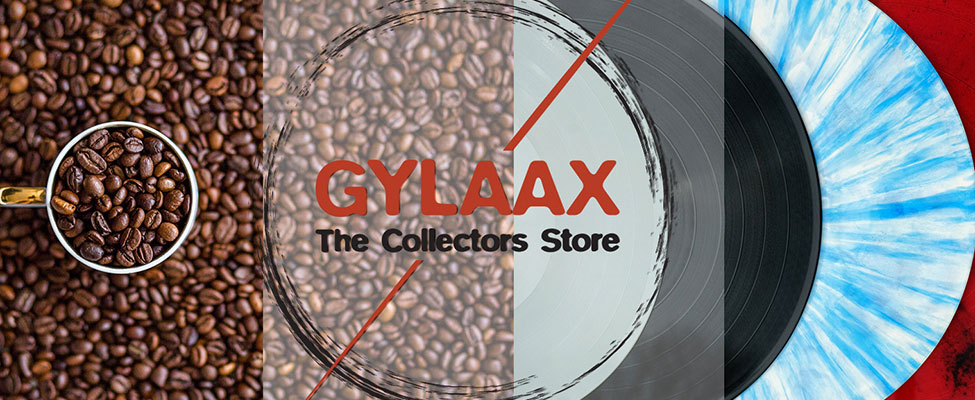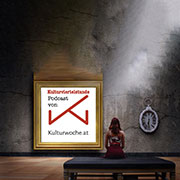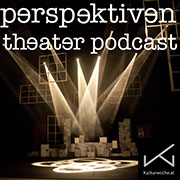Die Band The Murder Capital sticht aus der Masse an britischen Post-Punk-Bands heraus. Vor ihrem Konzert im Wiener Chelsea am 6.8.2023 nahm sich deren Drummer Diarmuid Brennan Zeit für ein Telefonat.
“It is important to get away from things, in order to come back”
Diarmuid Brennan (The Murder Capital)
Es ließen sich wahrscheinlich ganze Doktorarbeiten darüber schreiben, warum im UK und Irland Musik gedeiht, wie fast nirgendwo sonst. Wenn man sich durch essentials, best of-Listen und Diskographien durcharbeitet, stößt man in vielen Genres in großer Mehrzahl auf britische Bands.
Beinahe jeder Mensch, mit dem man im UK spricht, scheint entweder selbst in einer Band zu spielen oder zumindest einmal im Leben in oder für die Musikindustrie gearbeitet zu haben. Dieses spezielle Umfeld sorgt dafür, dass zwar unzählige Bands gegründet werden, vielen davon aber nur eine kurze Lebensdauer beschieden ist. Doch manche überdauern, stechen heraus und hinterlassen einen bleibenden Eindruck, indem sie einen Sound oder ein Element kreieren an die man sich erinnert. In Irland passiert diesbezüglich besonders viel in den letzten Jahren. Neben Fontaines D.C., die schon nach Erscheinen ihres ersten Albums hochgelobt wurden und deren Höhenflug seither nicht mehr zu bremsen ist und Gilla Band, sind es unter anderem auch The Murder Capital, die aus der Masse an britischen Post-Punk-Bands herausragen. Vor ihrem Konzert im Wiener Fluc am 6.8.2023 nahm sich der Drummer der Band, Diarmuid Brennan, Zeit für ein Telefonat.
Interview mit Diarmuid Brennan von The Murder Capital
Kulturwoche.at: When did you realize that music is more than just a hobby for you, something that you want to do for a living and as a professional?
Diarmuid Brennan (The Murder Capital): Once we got to tour around Europe. I remember the tour just before Covid, in 2020. I think we actually started in Vienna, or at least it was one of the earlier dates. We played at the Chelsea club. We had done a couple of tours before, but this was the first time where I looked at my calendar for 2020 during Christmas time and there was this tour in January and all the shows we were going to play and the beautiful cities we were going to go to and play our music. It was a special tour. We were playing these small clubs and people were there to see us and it was like "ok, we are doing this as professionals now.
So vollgepackt und vielversprechend das Jahr 2020 für The Murder Capital losging, so abrupt wurde es durch den Beginn der Covid-Pandemie und die damit einhergehenden Lockdowns gestoppt. Die Band hatte jedoch von Anfang an geplant nach der Tour Anfang des Jahres ein neues Album zu schreiben und aufzunehmen und hieß die Entwicklung somit für ihren Kreationsprozess willkommen. Diesen, so Brennan, zogen sie dabei absichtlich etwas in die Länge, um das Ende der Pandemiebeschränkungen abzuwarten und mit dem Album auf Tour gehen zu können. "Gigi’s Recovery", das zweite Album der Band, erschien Anfang 2023.
How did you deal with the isolation in general and how was it a unique experience to create art during a pandemic?
Diarmuid Brennan (The Murder Capital): I find isolation is different for everyone. Personally, I get a lot of solace in isolation. And there is a difference between isolation and loneliness. Loneliness gets to a point where it can become a problem. But Isolation forces you to look inwards. Being able to create music around that, that was a lot of the process of writing ‘Gigi’s Recovery’. We spent Saturdays just playing music together. We were together alone in that.
Dass Isolation gute Seiten habe und in vielerlei Hinsicht hilfreich sein kann, zeige sich, meint Brennan, auch in anderen Bereichen im Musikerdasein. Wenn man auf Tour gehe, werde das Leben zuhause für einen kurzen Moment angehalten und man hätte Zeit, Abstand und Klarheit über alles, was man zurückgelassen hat, zu gewinnen. “It is important to get away from things, in order to come back. Community and isolation they go hand in hand.”
In general, do you retreat when you write songs and try to shield any outside influences, or do you need influences from the outside?
Diarmuid Brennan (The Murder Capital): I definitely need influences from the outside. You can get inspiration from anywhere, really. It seeps in, whether it be from a gripping book, that makes you feel different about something, or watching a movie. That informs your next endeavour, usually.
Das erste Album der Band, "When I Have Fears", das 2019 erschien, setzt sich thematisch mit dem Selbstmord eines Freundes der Band auseinander. Jeder Song, so sagte der Frontman James McGovern einmal, beziehe sich in irgendeiner Form auf den Tod dieser ihnen sehr nahestehenden Person, welcher das Leben aller Bandmitglieder veränderte. Mal sind die Lyrics sehr abstrakt und die Situation, aufgrund derer sie entstanden sind, lässt sich nur erahnen, mal ist die Symbolik eindeutig oder es wird sich direkt, in einer klagenden Melancholie an den verstorbenen Freund gewandt, wie in "On Twisted Ground" ("Oh, my dearest friend/How it came to this/With your searing end/Into the abyss"). Der Album-Titel "When I Have Fears", erzählte der Sänger McGovern in einem anderen Interview, sei aber eine Referenz an die Angst, sein eigenes kreatives Potential nicht voll entfalten und erfüllen zu können; eine Art existentieller Angst, das eine Leben, das man hat, die wenigen Jahre, die einem zu Verfügung stehen, nicht richtig genutzt zu haben.
Do you think it’s a part of the human condition to want to leave behind a legacy? And does it really work the way people intend it to or believe it to?
Diarmuid Brennan (The Murder Capital): There is this philosophical argument that you make art because of the absurdity of mortality. I guess in terms of legacy, having a body of work is important. But for me, it is just something that helps connect my thoughts and my feelings. I find, sometimes a feeling that I have and a thought that I have don't really match, but music is a way that gets me to that place. Rather than a legacy that we leave behind it is the ability to be able to access a feeling and a thought in a moment. When we play our songs live, I sometimes find myself just drifting in and out of things that happened throughout my day and coming to terms with them. When you create the songs and then play them to an audience it brings them to another place where you're focused on them maybe the same way that an actor is focused on their lines. You are in your own world and there is a thought process happening.
Im Musikjournalismus kommt kaum ein Review oder Portrait ohne Vergleiche aus. Bei The Murder Capital tritt dieses Phänomen besonders stark zutage. Beinahe jeder Artikel über euch wartet mit unzähligen Referenzen auf, von Idles über Radiohead bis zu dem obligatorischen Joy Division-Vergleich. Darauf angesprochen meint Diarmuid: "Well, we do that as humans. We hear something and it reminds us of something else. I guess it is a human need to categorize things. But yeah "this band sounds like such and such", you see that in reviews and magazines constantly. There were some hilarious ones like "it sounds like Tom Petty mixed with a little bit of Metallica" or something absurd like that. But again, it is a human need to identify something. Even if only as a means of communicating it to another human who understands the reference but does not know the band yet. It sometimes gets absurd, but sometimes I catch myself doing that "they sound like so and so" too, when actually, no, they don't. Most of the time those bands have their own creative expression."
Did the way you approach music and listen to a song change after you started making music yourself?
Definitely. When I am writing music, I find it hard to go back and listen to other music. Maybe it is some kind of fatique, because you are listening to music all day and try to write it. I only get back into music when I dive into a discography of a band. Maybe I don't have the mental capacity to do that when I am writing music myself. But it's also really rewarding when it comes back. Sometimes new music doesn't hit you, but then sometimes there are those moments when you listen to something and it brings you to a place where you can finally... you know, what I was mentioning earlier, when a feeling and a thought just come to together. It could be a lyric that you listen to and which makes the whole search meaningful.
Yes, lyrics are often a vital part for connecting with music for me, too. What do you think makes a great song lyric?
It is a two-way street. It's the person that is hearing the lyrics and the person that is delivering it. There has to be a connection that is built through experiences. It has to be able to have a relevance to the listener in order to become a great lyric. Being able to reduce a thought or a big idea that you might not have been able to put into words, reducing it to its simplest form where you can read it and pull so much out of it, even pull your own experiences out of it. It doesn't matter what the song is actually about, because the listener might project their own experiences onto that lyric and it becomes something else. That is the best part of a good lyric, when it just hits you in a way where you feel like "this is about my own experience."
Die Band wird am 06. August 2023 ein Konzert im Wiener Chelsea spielen. //
Text und Interview: Christina Masarei
Foto: themurdercapital.com
Gefällt Ihnen der Artikel? Jeder Beitrag zählt!
paypal.me/gylaax
Kulturwoche.at ist ein unabhängiges Online-Magazin, das ohne Förderung von Bund/Stadt/Land bzw. Großsponsoring auskommt.













